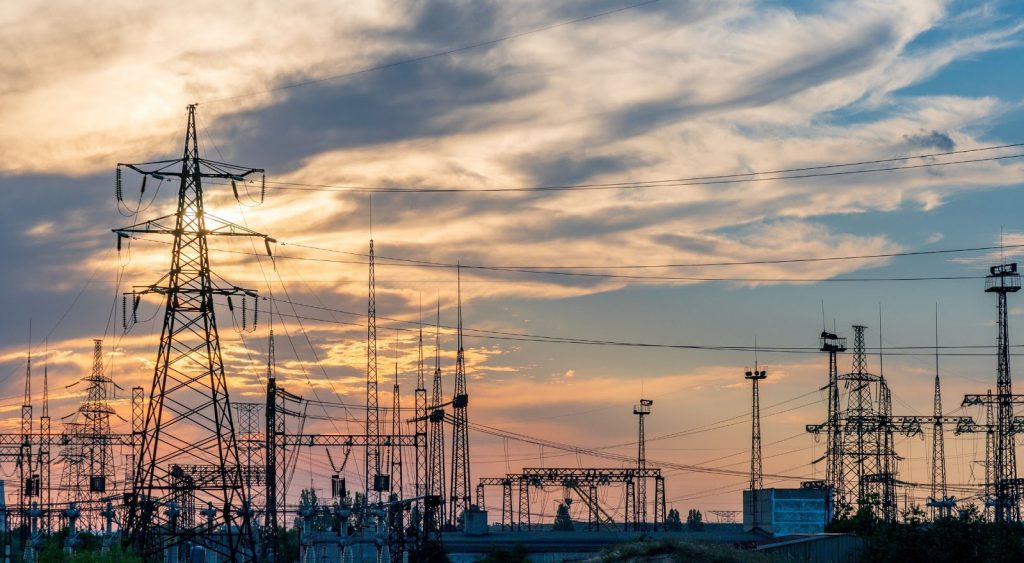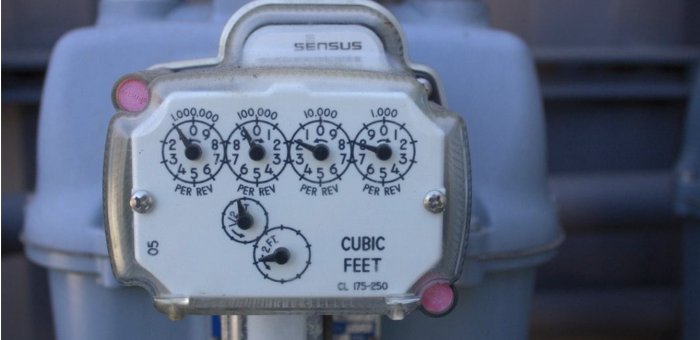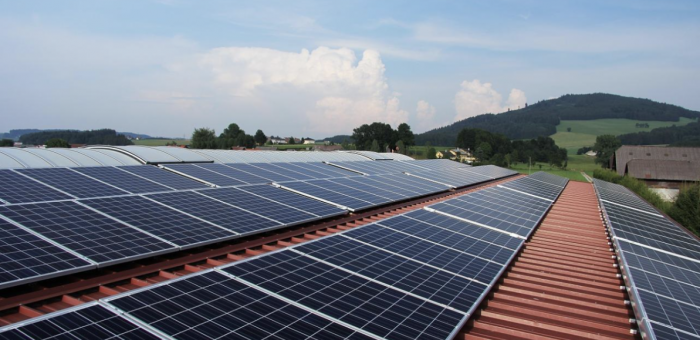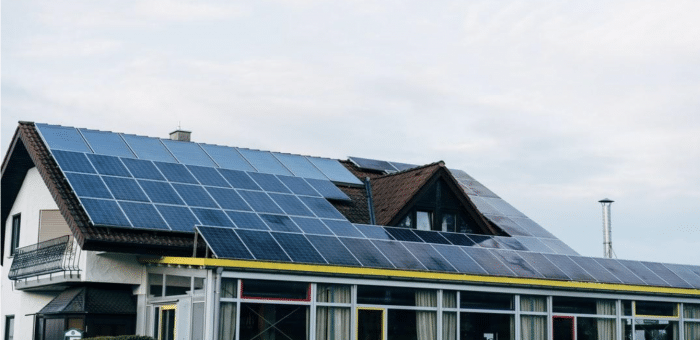If you live on this planet, you already know that taxes are a pain. Any tax deduction you can find makes them a little less painful, so you’re trying to figure out how to get a home office electricity deduction to keep a little more of your hard-earned cash.
Click on a section to skip directly to it:
Home Office Types
There are two main types of home offices. The kind of home office you have can depend on your work situation and family.

Personal Home Office
One type of home office is a personal home office. Personal use home offices are not used specifically for work, such as for a job or running a home business.
Some people have personal home offices for running a household, such as handling:
- Personal finances
- Paperwork
- Records
- And files
A home office that you use for personal use is NOT tax-deductible.
Working Home Office
A working home office, on the other hand, is used specifically for work. Working home offices are used exclusively by business owners or remote workers to perform their job duties or run their business.
There are business expenses associated with a working home office that may be tax-deductible.
Are Home Office Expenses Tax Deductible?
The expenses associated with a working home MAY be deductible. For the costs of a home office to be tax-deductible, two of the following requirements must be met:
Regular and Exclusive Use
You have to regularly and exclusively use the home office for work or business purposes. This means that you cannot use the office for any other purposes, including personal use.
You can only use the office for business or work purposes for a home office expense deduction.
Principal Place of Your Business
The home office has to be your principal place of business.
You have to work remotely from home 100% of the time or run your business solely out of the home office location if you are claiming a home office on taxes.
Discover the best electricity rates.
Power Wizard finds you the best electricity plan and ensures you won’t overpay for electricity again.
Learn More in Under 2 MinsWhat Are The Benefits Of A Home Office Electricity Deduction?
One of the tax deductions and benefits is that you can write off is a portion of the utilities. One of the utilities you can use as a tax deduction is electricity.
What percentage of utilities can I write off?
One of the tax deductions and benefits is that you can write off is a portion of the utilities. One of the utilities you can use as a tax deduction is electricity.
What percentage of utilities can I write off?
You can write off a percentage of your electricity bill that is equal to the percentage of space that your office occupies in your home. For example, if your home office occupies 20% of the space (square footage) in your home, then 20% of your electricity bill can be used as a tax deduction.
- Reduces your taxable income. The primary benefit of a home office electricity deduction is that it reduces the amount of income that you have to pay taxes on.
- Your business is paying for some of your normal electricity use/bill. If you are running a standard office at home using a computer and a printer, then you are probably not using major amounts of electricity over what you would normally use in your household anyway. This means that you are able to deduct electricity expenses that you would likely have anyway.
(If you are running a type of business that is using a lot more electricity than you would personally use, you can still write off the percentage of the electricity you’re allowed to deduct.)
As of 2019, the IRS allows a home business to write off $5 per square foot of office space as a tax deduction.

What Are The Sources Of Home Office Electricity Consumption?
The sources of home office electricity consumption can vary by the type of business or work you are performing from your home office.
Computer
Your computer is actually one of the biggest consumers of energy in a home office.
Computer monitors use approximately 100 watts of electricity per day. While the computer consumes electricity when in use, you can save on electricity consumption by turning off your computer when you’re not using it —especially on nights and weekends.
Lights
Lighting your home office is another source of electricity consumption. Overhead lighting and lamps are both sources of lighting for a typical office.
If possible, use daylight as a natural source of lighting to help you cut electricity use. You can also switch to energy-efficient light bulbs.
Printer
Believe it or not, your printer consumes a lot of electricity. You can save electricity by using an energy-efficient (ENERGY STAR rated) printer.
You can also make sure that your printer either goes into sleep mode or is turned off when not in use.
Thermostat
Another huge electricity suck in your home office is your thermostat —whether heating or cooling your office space.
A thermostat controls 60% of the energy use in your home office.
You can save money by turning your thermostat up (for AC) or down as low (for heat) or high as you can stand to save electricity.
Let us find you the best electricity plan in seconds and start saving.
What Deductions Can I Claim For A Home Office?
There are quite a few tax deductions for running a home office for business or remote work.
You can write off a percentage of your:
- Computer
- Internet
- Phone
- Utilities (including electricity)
What Utilities Can Be Deducted For A Home Office?
There are several different utilities that can be deducted for a home office.
Generally, you can write off the percentage of your bill that correlates to the square footage percentage that your office space takes up in your home.
If your home is 1,000 square feet and your office is 150 square feet, then you can write off 15% of your bill (for each utility) as a home office expenses tax.
Home Office Electric Bill Deduction
One of the utilities you can deduct as a home office expense is electricity.
Other Utility Deductions
The other utilities you can use as a tax deduction include:
- Garbage/recycling
- Water
- Heating
- Cooling
- Sewage
- Internet
- Phone (If you have a business line, you can write off 100% of the bill as a tax deduction. If you are using a personal landline or cell phone for business use then you can only write off a percentage of the bill.)
What Other Expenses Can Be Deducted For A Home Office?
There are quite a few expenses that can be deducted for a home office, besides electricity. You can write off a percentage of each of your home office expenses. The percentage you can deduct correlates with the percentage your home office takes up of your home.
For example, if your home office is 20% of your home, then you can deduct 20% of each bill as a home office expense.
Some of the other home office expenses you can deduct are:
- Mortgage interest (if you own your home)
- Home depreciation (if you own your home)
- Property taxes (if you own your home)
- Homeowners insurance (if you own your home)
- Home maintenance (if you own your home)
- Business insurance
- Rent (if you rent your home)
- Renters insurance (if you rent your home)
How to Claim Home Office Expenses – Electricity Deduction
According to the IRS, you have two options when claiming home office expenses. You can claim home office expenses whether you rent or own your home. You can also apply the deduction no matter the type of home where you live (apartment, single-family home, etc.).
Home Office Electricity Deduction Options
When deducting electricity for a home office, you have two options for calculating the amount you can claim on your tax returns.
Simplified Option
The first way to calculate a home office electricity deduction is by using the simplified option. This option is generally used for tax returns filed prior to January 2013.
The simplified option allows you to multiply a prescribed rate by the allowable square footage of the home office instead of using actual expenses.
You can then deduct this portion of your electricity bill as a home business expense. This is as opposed to an actual electricity expense.
Regular Method
A second way to calculate a home office electricity deduction is by using the regular method. This option is required for tax returns for 2012 and years prior.
The regular method calculates how much of your home you use for business as a percentage of the total area of your home.
You can then deduct this percentage of the actual electricity expenses as a tax deduction.
Discover the best electricity rates.
Power Wizard finds you the best electricity plan and ensures you won’t overpay for electricity again.
Learn More in Under 2 MinsOther Ways to Reduce Home Office Electricity Costs
Beyond using electricity use for your home office as a tax deduction, there are other ways you can reduce electricity costs.

Ensure You Have the Best Plan For Your Needs
One of the best ways to reduce your electricity costs for your home office is to ensure you have the best electricity plan.
Each home, home office, and family uses electricity differently. This means that you have to choose an electricity plan that speaks to your needs.
Unplug Home Office Electronics When Not In Use
Did you know that electronics continue to draw or use electricity even when they are turned off?
Well, they do.
Another way you can save money on your home office electricity is to unplug your home office electronics when not in use.
Unplug:
- Lights
- Computers
- Printers
- Heaters
- Monitors
Adjust Thermostat to Reduce Home Office Electricity Expenses
Another huge electricity user is the heater and air conditioning in your home. One way to reduce home office electricity expenses is to adjust your thermostat.
In the summer, turn your thermostat up as high as you can while maintaining your comfort level. This prevents your air conditioner from kicking on more often, which reduces the electricity expense of cooling your home office.
In the winter, turn your thermostat down as low as possible while maintaining your comfort level. This prevents your heater from kicking on more often and will reduce the electricity expense of heating your home office.
You can also use blinds or curtains on your office windows to block out the sun and heat in the summer. Blinds and curtains can also help to prevent the cold air from seeping into your home office during the winter months.
Use Energy Efficient Electronics And Lighting
Install and use energy-efficient office equipment.
ENERGY STAR rated electronics can help you operate more energy efficiently, which also saves you money on your electricity.
This can be especially true since office equipment such as computers and printers can use a lot of electricity.
Use Natural Lighting, Heating And Cooling
Use natural resources as much as possible. Open curtains and blinds to let the natural daylight in as much as possible. This can alleviate you from having to turn on lighting in your office.
When it is sunny outside in the cooler months, let the sunshine in through your office windows to help warm or heat the room where your office is.
When it is cold outside, close the curtains or blinds to help trap the warm air inside your office. It can also help to keep the cold air from seeping through your windows.
If it is hot and sunny during the warmer months of the year, closing your curtains or blinds can help keep the room you use as your office cool.
In Conclusion
In summary, taking advantage of the home office electricity deduction can provide significant tax benefits for those who qualify. By understanding the requirements and accurately calculating your expenses, you can reduce your taxable income and maximize your savings.
Remember to keep detailed records and consult with a tax professional to ensure compliance with IRS regulations. As more people continue to work from home, being knowledgeable about these deductions can help you manage your finances more effectively and make the most of your home office setup
More From the Power Wizard Blog
-
Affordable Electric Bill: Power Wizard’s Promise of Protection
Sarah, a proud Texan, knows that everything is bigger in Texas – including the choices when it comes to electricity providers. She’s no stranger to the complexities of deregulated energy markets. With a bustling household, she juggles work, family, and keeping the lights on. But there’s one thing Sarah doesn’t want to juggle: her electric bill. […]
View Article -
Vampire Energy: How Phantom Power Drains Your Wallet and the Environment
Imagine your home filled with silent energy sippers, lurking in the shadows, unnoticed yet constantly draining power and your wallet. Vampire energy, or phantom load, refers to the electricity electronic devices consume, even when turned off or in standby mode. These energy vampires are prevalent in every household and workplace, from the charger left plugged […]
View Article -
The Top Sources of Carbon Emissions in the U.S.
Climate change due to rising global temperature seriously threatens the natural ecosystem. It can result in erratic weather featuring intense drought, heat waves, melting ice caps, warming oceans, and increased storms when left unchecked. As the impact of climate change worsens, the risk of biodiversity loss and human extinction gets bigger. Table of Contents What […]
View Article -
California Solar Tax Credit & Incentives for Residential Rooftop Solar
Are you considering investing in residential solar panels in California? You’re not the only one. Research shows that California was ranked number one out of 50 states in 2022 for solar power generation, with more than 11 million homes powered by the sun. A major reason why solar power is popular statewide is that prices have dropped […]
View Article -
What Should You Include in an Energy Efficiency Audit?
Rising energy costs mean higher electricity bills, and for the average homeowner or business, a little savings each month can add up to extra cash at the end of the year. If you’re looking for ways to reduce your home’s energy consumption, performing a home energy audit is a great place to start. Table of […]
View Article -
How to clean your solar panels
Click on a section to skip directly to it: Why is it important to clean your solar panels?Solar panel cleaning: a step-by-step breakdownMake sure you’re saving the most on your monthly energy bill Have you considered installing a renewable energy source at your home? Power Wizard recommends trying solar energy, which accounts for 3% of […]
View Article -
How to Reduce Your Carbon Emissions
Click on a section to skip directly to it: Why is it necessary to lower carbon emissions?Steps to take to minimize your carbon emissionsReduce your carbon emissions with carbon offsets Carbon emissions refer to the measure of the impact of human activities on global warming and climate change. Every person on the planet contributes, directly […]
View Article -
Solar Energy Credits: Everything You Need to Know
Solar panels are a great way to save money. They are energy efficient and reduce the impact of electricity production on the environment. You can get them installed on the roof of your house to reduce your reliance on the electric grid. Once installed, solar panels help passively produce energy from the sunlight — as […]
View Article













